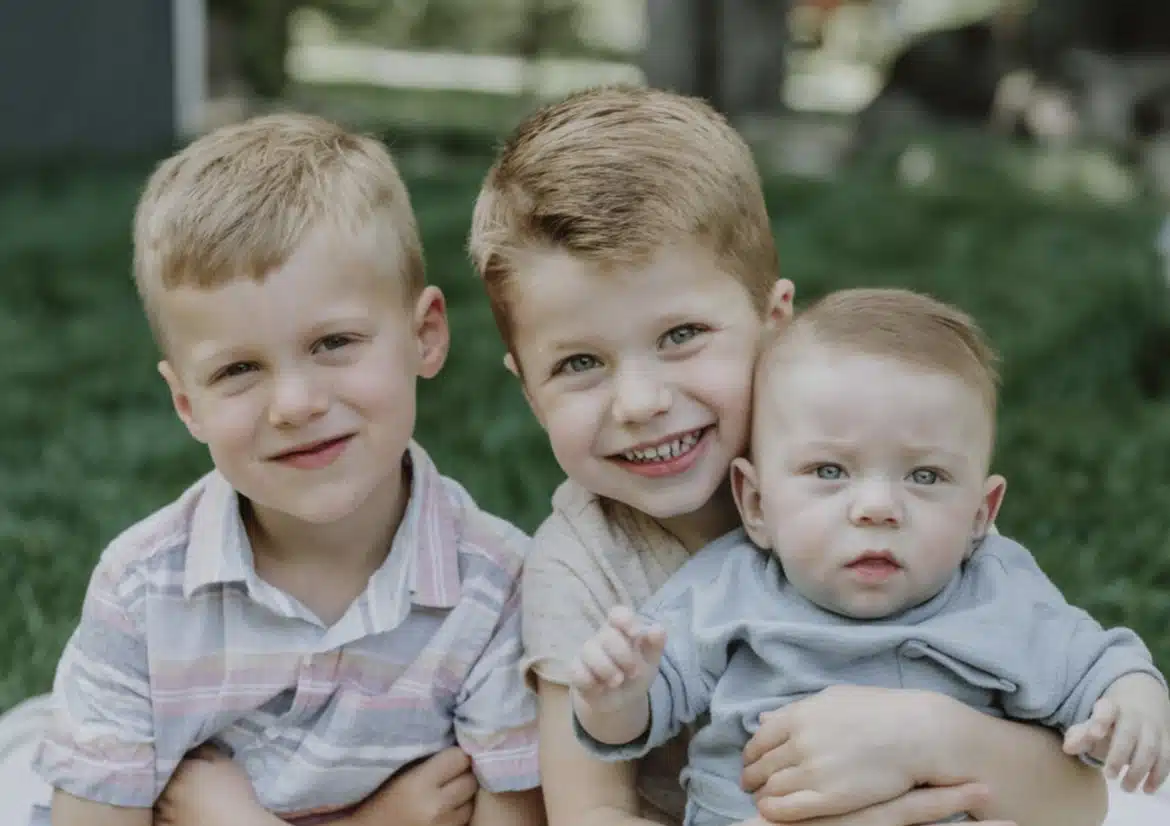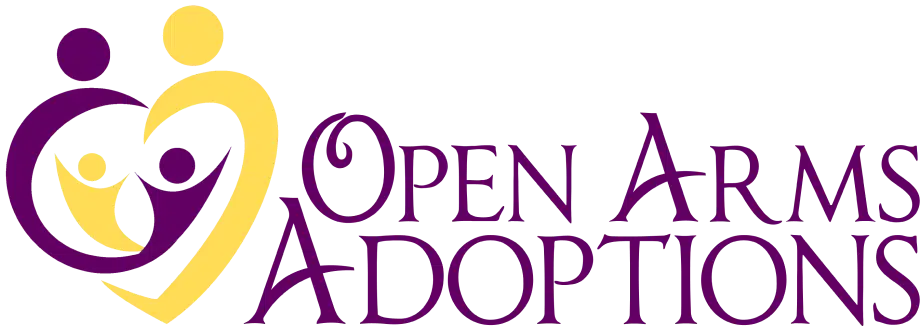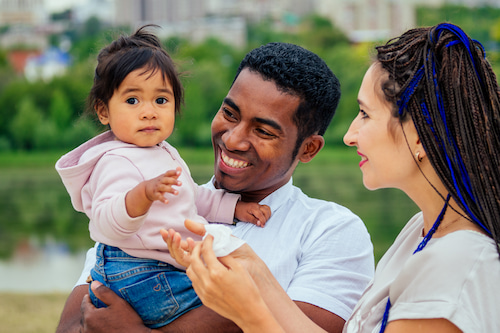Adoption is the legal process to provide a loving, stable home for children whose birth parents cannot raise them. Children who are adopted into families of a different culture or race face additional adjustment challenges as they integrate into their new family, such as learning unfamiliar customs, different foods, and different languages.
When welcoming them into their new family, it is vital to be mindful of a child’s culture. Honoring a child’s culture helps them develop their identity and have a stronger sense of self, leading to greater self-esteem and improved family relationships.
Transracial and Transcultural Adoption
Transcultural adoption is when a parent or parents adopt a child of a different race, culture, or class, while transracial adoption is when parents of another race or ethnic group adopt a child.
Parents adopting across cultures and races face unique circumstances, such as affirming the child’s cultural and racial identities, coping with racism and bias, and preparing the child for societal reactions that may occur for transracial families. Adoptive parents in transracial adoptions should work to incorporate their child’s cultural heritage into their family life. This will positively impact the child’s identity development and confidence in who they are.
However, adoptive parents can help children embrace identity by providing role models, history, information, and customs, along with providing coping skills and fostering open communication.
The Impact of Culture on Identity
Culture plays a significant role in shaping a person’s identity. It provides a set of values and beliefs that guide behavior and connect them with traditions and customs that link them with their ancestors and heritage.
A child’s connection to their cultural heritage helps them form a sense of identity and belonging, which helps them develop a positive self-image. Adoptive parents should embrace their child’s cultural heritage, as positive reinforcement of a child’s culture can boost their self-esteem and self-confidence. Children who feel proud of their heritage and see it reflected positively in their family will likely develop a stronger sense of self.
Failure to acknowledge a child’s cultural identity can lead to negative outcomes on their development, such as:
- Loss of belonging
- Loss of sense of confidence
- Sense of identity crisis
- Loss of heritage and traditions
- Social exclusion and discrimination
Cultural Competence in Adoption Agencies
An adoption agency’s role is to provide support services that are culturally sensitive and responsive to the unique needs of the child and adoptive families.
Here are some things to look for in an adoption agency when considering transracial or transethnic adoption:
- Is the agency experienced in supporting adoptive parents as they prepare to parent a child of a different race or ethnicity?
- Can the agency direct you towards resources that will help you connect your child to their culture in the community?
- Inquire about the agency’s support services and any special training they provide prospective parents considering transcultural adoption.
- Does the agency encourage you to ask questions and express any concerns so they may support you before and after the adoption?
It is crucial to work with an adoption agency that has the training and knowledge to discuss the preferences, feelings, and capacities of prospective adoptive families when caring for a child of a different race or ethnicity.
Considerations in parenting a child of a different culture
When adopting, a prospective family must consider the child’s culture and assess their ability and willingness to learn about and bring their cultural heritage into their life.
An adoptive family considering adopting across cultures must consider certain factors when choosing a child.
- Are you committed to understanding, respecting, and valuing the child’s culture and actively supporting their connection?
- Will your child have access to a community where they can meet people who share their cultural or ethnic background? Are you willing to seek out these opportunities for connection outside your community?
- Are you prepared to address issues of bias and discrimination the child may face coming into your family and community?
- Are you open to incorporating your child’s customs and traditions into your established traditions and modes of celebration?
Above all, your goal as a parent should be to provide an environment of nurturing and acceptance that honors the child’s heritage while supporting their overall well-being.
Open Communication with Birth Parents
At Open Arms Adoptions, we encourage openness in adoption. This means that the birth and adoptive families agree upon a level of contact to maintain. This can be a positive step in helping a child learn about their heritage and maintain a connection with their culture.
Openness in adoption provides children with a direct link to their biological roots, allowing them to develop a more cohesive identity. Children have firsthand exposure to their cultural heritage through birth parent stories of favorite customs, foods, and celebrations. These relationships serve as a living link to the child’s heritage and cultural background.
Challenges and Solutions
Children in transracial or transcultural adoption may struggle with feeling different as they adjust not just to their new family, but in broader contexts such as a new neighborhood and new school. Sadly, they may encounter racism or bias while getting acquainted with their new social environments. In these situations, it is all the more important to help a child embrace their ethnic identity in order to foster a positive self-image and be proud of who they are. Support from families, communities, and professionals can help children celebrate their heritage as they acclimate to their new environment.
Adoptive families can overcome cultural barriers and misunderstandings using certain strategies. It is imperative to have open, honest communication with the child. Encourage questions and be proactive about connecting with available community resources if you are unsure how to navigate issues. Seek out opportunities to informally educate the child about their heritage, such as books, toys, and festivals. Above all, be available to actively listen, be patient, and pick up on nonverbal clues your child may be using as a form of expression.
It is important to note that forcing a child’s ethnic identity upon them is counterproductive and can lead to resistance and misunderstandings. Offer opportunities for the child to learn about their ethnic background, but allow them to engage at their own pace. First and foremost, creating a supportive environment that celebrates diversity and openness to exploring cultural customs is the all-important first step to helping a child embrace their identity.
Conclusion
Cultural sensitivity in adoption is a vital part of ensuring a child develops a strong sense of identity and belonging, not just within the context of their ethnoracial culture, but with their adoptive family.
Prospective parents should approach any adoption with an open mind, especially in the case of transcultural and transracial adoption. Parenting a child of a different culture requires a commitment to preserve and honor the child’s heritage as they integrate into their new family’s norms, customs, and traditions.
Cultural differences cause a mismatch between a child’s self-identity and social surroundings, which may obstruct their development and ability to learn and thrive. Children who grow up in an environment that nurtures their culture are better prepared to be adults who are confident, secure, and accepting of those whose cultures are different than their own.
Open Arms Adoptions invites you to explore the diversity of adopting across cultures. Call us now to learn how Open Arms can support your family on the adoption journey.








